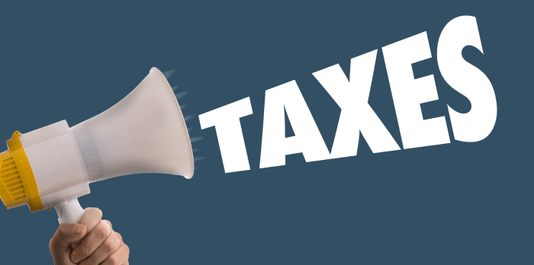If you pay less than 80% of your income tax at source and your tax bill is over £1,000, you may well be told by HMRC to make ‘payments on account’. This blog post explains what payments on account are & when you need to pay them by
So, what are payments on account?
Payments on account are payments towards your next year's Income Tax bill. The amount you have to pay for each payment on account is half of your previous year's tax bill. For example, if your tax bill for this tax year is £2,000, then you would also have to make two payments on account totalling £2,000 towards next year's bill. This includes Class 4 National Insurance, but not student loan repayments or Capital Gains Tax.
When are payments on account due?
Payments on account are due on 31st January during the tax year & 31st July (so soon after its ends). For instance, on 31st January 2024 and 31st July 2024, you might be told to make payments on account, towards the tax that you're going to have to pay on your income for the 2023/24 tax year, even though the tax return for that year is not due until 31st January 2025.
If you end up paying too much, then HMRC will give you the difference back or they will deduct the difference from your next tax bill.
Payments on account can be a bit of a shock when it’s the first time!
If you’ve been told that you need to make payments on account for the 1st time, then it might be a bit of a shock. Let’s say that your tax return has just been prepared & you’ve got £2,000 in tax to pay. It will most probably be a bit of a surprise to find out, that not only have you got to pay £2,000 by January the 31st, but there’s another £1,000 due by the same date as well. Then, there is another £1,000 due by the 31st of July- Ouch!
This can come as an unpleasant surprise and is one reason why it's a good idea to do your tax return as early as possible - so you have time to put money aside!
What happens if I’m late with my payments on account?
Payment on account is not something that is widely known about among people who have never been part of the Self Assessment system. If you’ve been expecting a tax bill of, say, £2,000, having to find an extra £1,000 to cover your first payment on account may simply be impossible.
If you can’t pay the whole tax bill by 31st January, you are likely to face interest charges on the outstanding amount. You should get in touch with HMRC as soon as possible to try to arrange a ‘Time-to-Pay’ agreement.
You can apply to reduce your payments on account, but be careful!
The size of the payment on account is based on your tax bill for the previous tax year. HMRC assumes that you will continue to earn at the same rate and therefore, you’ll pay roughly the same amount of tax in the following year.
However, you may know in advance that you will pay too much on account, because your tax bill next year will be lower. If this is the case, you can apply to HMRC to reduce your payments on account. Though, BE CAREFUL if you are going to ask for your payments on account to be reduced. If you tell HMRC that your tax bill will be lower & it isn’t, then HMRC will charge you interest on the amount of the payment on account that you should have made.
Balancing payments
When you complete your tax return, you might find that this year's tax bill is actually higher than last year's. Unfortunately, you might owe more tax than you’ve already paid via payments on account. If this is the case, you’ll need to make a ‘balancing payment’ to HMRC by 31st January of the following tax year.
For example, if you’ve made a payment on account of £2,000 towards your 2022/23 tax bill and you find that you’re actually due to pay £2,200 when you complete your tax return, you'll be required to make a balancing payment of £200 to HMRC by 31st January 2024.
Your balancing payment is also where you’ll pay anything you owe for Capital Gains Tax and student loans, as these are not included in the calculation for payments on account.
Therefore, your Self Assessment tax bill is essentially a combination of balancing payments for the previous tax year and payments on account towards the next year’s tax bill.


